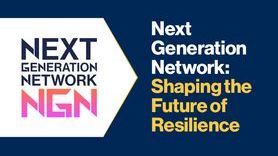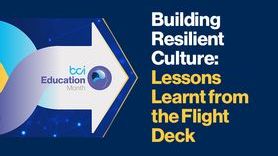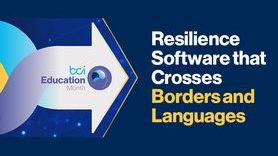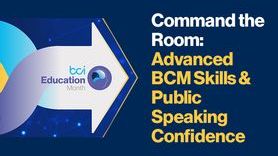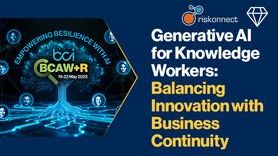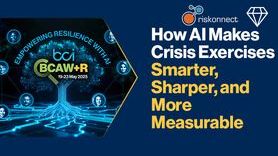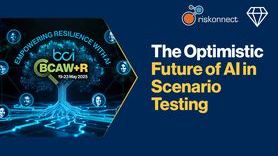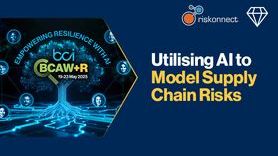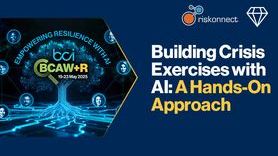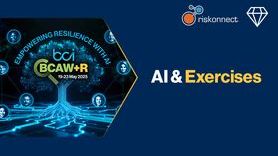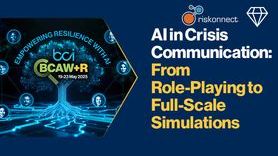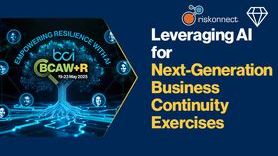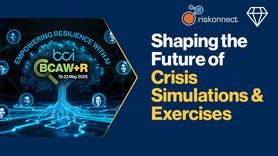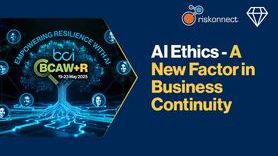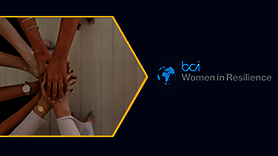A BCI WiR article: ‘Tricks of the trade for women professionals’ - by Lyndsey Orton BSc. (Hons) MBCI
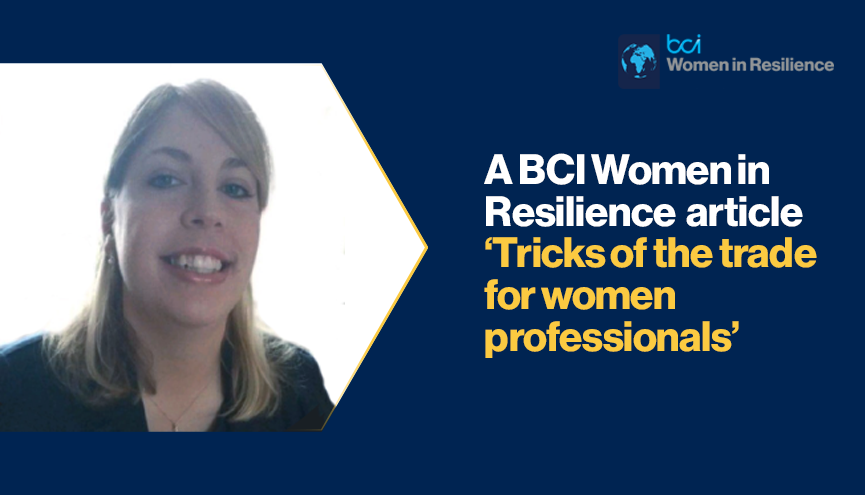
I joined the workforce from the military, and it was quite a shock as a civilian office environment took some adjusting. The key differences were the different teams, finding out what everyone did, and the new terminology. Understanding what was acceptable regarding working hours, workload, and hierarchy were also a challenge.
However, over time, I learnt the ropes. I had completed my degree in Disaster Management and Emergency Planning, and I was ready to apply this knowledge to my new role as a Business Continuity Manager.
Therefore, I have listed below the top 10 pieces of advice I wish someone had told me when I first set out on my career in resilience around ten years ago.
- Know the standards – It is important to have a good foundational knowledge of the International Standards. Some extremely useful ones in resilience are the BCI Certification, ISO 22301 Business Continuity, ISO 31000 Risk Management and ISO 9001 Quality Management. If you know these standards, you have the foundations of a great BC system.
- Understand your responsibilities – It is often easy for an organization to link a lot of different tasks to resilience and it is easy to end up being involved in many different work streams. If you try and help everyone then you can end up getting overwhelmed quite quickly. Therefore, ensure you understand what your role, objectives and responsibilities are so that you know where your main effort should be focussed. It is fine to help out in other areas, and sometimes it is the best way to learn the organization, but this shouldn’t be to the detriment of your day job.
- Never stop learning – There are many people in the world who turn up to work every day, do what they have always done, and then go home at night without questioning anything. However, the world of resilience is always changing. Currently in the Finance sector there are new regulations and advice around resilience, third-party management, and concentration risk. If you want to keep up, you have to stay engaged with the changing environment. Always look to peers and horizon scan for new legislation to get ahead. Completing extra learning in your own time is invaluable. Learning your subject in depth, growing your network, and challenging the way in which you do your job are so rewarding. Also, thinking ahead to where you would like to get to one day, completing the relevant qualifications while you still have less responsibilities and more time, and having them ready for when you do need them, is a great strategy.
- Build your network - Everyone can learn from people in their network. There will always be a time in your career when you need support in some way. Having people around you that you can go to and ask how they have done something, or which approach should be taken, can save you a lot of time and effort. Someone else has always done the thing you are trying to do, made the mistakes, and gained the advice already. Let them guide you to the right results sooner. Obviously this works in the other direction too and you should always be prepared to help others in your network. Using technology and platforms, such as LinkedIn, are great ways to build your network but attending events and meeting people face to face is also very effective.
- Get involved – This is so important, as everyone has something to add to the resilience conversation. Even if you are just starting out on your career path, you will have had experiences or be working somewhere that others know nothing about. Having a range of opinions and ideas is great. Ask questions as much as you can. Attend events, set up drop-in sessions in your organization, get involved in volunteering, and talk to everyone. The most effective way to learn is to get involved where you can.
- Challenge the ‘normal’ – Just because there is a set way to do something doesn’t mean it is the best way to do it. The only way to improve a process is to question it first. Never assume that just because this is how it has always been done, that you have to continue doing it that way. Sometimes there are very good reasons for completing a task in a certain way and the people who have been in your role before you may have gone through many iterations to get to the most effective solution, which is fine. Listening to people who disagree with you is always useful as well. Don’t be afraid to have your ideas and processes challenged, either you will be able to explain why you are doing something that way or someone else will have a different perspective and help you improve your process.
- Stand by the practices that you know are right – Just as much as you need to challenge processes, you also need to be able to explain and defend those processes. Being able to demonstrate the value of the work you are doing, track progress, and present findings is important. This will help senior stakeholders understand what you are doing and why. There are many standards, frameworks, and guides to help in the resilience field and using them makes defending your processes and approach much easier than trying to defend something you have made up.
- Beware of the tick boxers – There will be individuals who do not see the value in resilience activities and just want to get on with their jobs. To be effective in our roles we need to make these individuals aware of the value of completing these tasks for everyone. More often than not, sitting down with these people, breaking down what you are doing, why you are doing it, and how it can actually help them in their roles will put you on the same page and gain their buy in. Completing a risk assessment, for example, will help identify issues that they might face every day but just work around or avoid them. Highlighting them in a risk assessment report and getting them raised through the hierarchy can help get them resolved, which will improve the resilience of the organization and the individuals who have put up with it.
- Always ask if you don’t know – I cannot stress this point enough. Do not be afraid to speak up if something is confusing or you don’t know the answers. No one can possibly know everything. Over time you gain knowledge and experience through trial and error or through asking questions. You might even ask a question that everyone else wants to know the answer to or they hadn’t thought of yet.
- Give yourself time – There are times when you will feel like everything is a struggle and you know nothing. That is not true, and it will take time to learn. Organizations can be complex and are all different. Don’t be too hard on yourself if you haven’t quite got the organization’s layout or all the acronyms sorted in the first three months. If you are asking questions and are trying to learn, that is all anyone can ask. Write as many notes as possible and keep looking back through them as this will prevent you repeatedly asking the same questions.
This is a great industry with some amazing opportunities and brilliant people. You get out what you put in and there will be highs and lows, but keep going and the rewards will be great.


